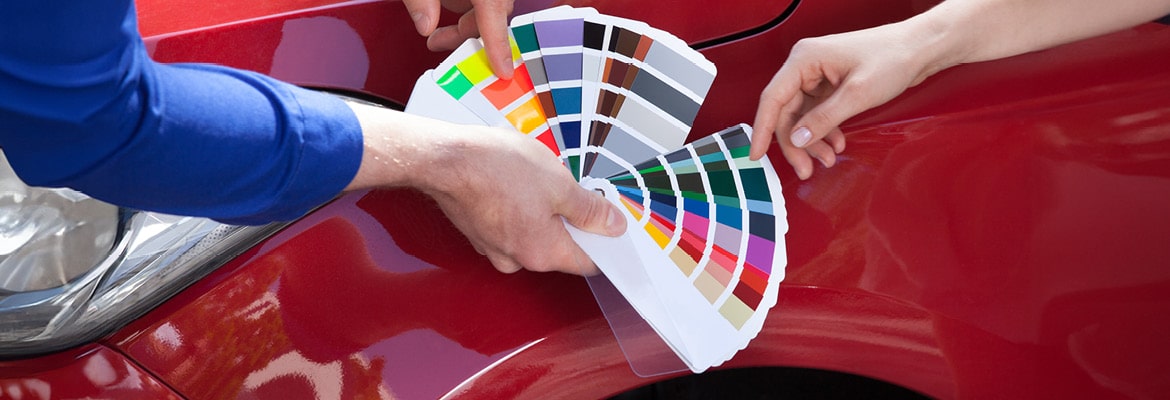April is Distracted Driving Awareness Month. The National Safety Council (NSC) started this movement to increase awareness around this dangerous issue and reduce the number of distracted drivers. With Distracted Driving Awareness Month comes a wealth of information, guidelines, and tips to build better, safer driving habits.
Read on to learn more about this important effort and find out how you can take action to make our roads safer.
What is distracted driving?
Any activity that diverts attention from driving is considered a distraction. No matter how small or short the distraction is, it can result in a costly ticket, serious injury, or worse.
Common driving distractions include:
- Texting
- Talking on the phone
- Eating and drinking
- Applying makeup or fixing hair
- Smoking or vaping
- Reading directions
- Reaching for items in the passenger seat or back seat
- Using electronics or the car’s user interface
The 4 types of distracted driving
- Auditory – hearing or listening to something not related to driving. This could include phone calls, podcasts, music, or any other disruptive audio.
- Cognitive – being distracted by thoughts unrelated to driving or losing cognitive function from lack of sleep (also known as drowsy driving).
- Manual – physically handling something other than the steering wheel. Common manual distractions are eating or applying makeup while driving.
- Visual – looking at something other than the road. Visual distractions often involve the driver reading text messages or looking at the user interface on their car’s dashboard.
Distracted driving affects everyone on the road, including long-haul drivers and truckers. With drowsy driving being one of the most prevalent causes of crashes and injuries it’s important to stay focused behind the wheel.
Distracted driving facts
There were 44,680 estimated motor-vehicle deaths in 2024, a slight decrease from 2023. The link between these accidents and distracted driving is significant:
- According to the CDC, nine people in the United States are killed every day in crashes that are reported to involve a distracted driver.
- The National Highway Traffic Safety Administration (NHTSA) estimates that 8% of fatal crashes, 14% of injury crashes, and 13% of all police-reported motor-vehicle crashes were reported as distraction-affected crashes.
- In its annual survey, The Zebra found that 47% of drivers in 2024 admitted to sending or reading a text message while driving (a 31% increase from the previous survey in 2021).
According to NHTSA, young adult and teen drivers are the most distracted drivers on the road. In the U.S.:
- 25% of all distracted drivers involved in fatal crashes were adults aged 25-34.
- 17% of distracted drivers involved in fatal crashes found to be using their cell phones were aged 15-20.
These statistics don’t just include the people behind the wheel—other drivers and even pedestrians are injured or killed due to distracted drivers. As technology continues to be integrated into our daily lives, drivers will be confronted with more distractions in the form of texts, instant messages, FaceTime, Zoom calls, and more.
Distracted driving policy and laws
Distracted driving is a concern, and that’s not due to a lack of laws or regulations. Although there are many ways for drivers to be distracted, cell phone use is by far the most prevalent. Many states have strict laws in place for cell phone use while driving, with a majority of them
outright banning handheld use and texting while behind the wheel. However, these laws are at the discretion of local governments and vary from state to state.
- No current state bans all cell phone use for all drivers
- Texting while driving is banned for all drivers in 49 states
- All handheld cell phone use is banned for all drivers in 29 states
- Cell phone use, including handsfree, is banned for all novice drivers (anyone who has been driving for less than one year) in 37 states
- Any cell phone use, including handsfree, is banned for all school bus drivers in 25 states
Distracted driving ticket costs
Like the laws themselves, the penalties for breaking them vary widely depending on the state. For example, drivers in Alabama will be charged $50 the first time they’re caught texting while driving, $100 the second time, and $150 for all subsequent offenses. However, in Illinois, Utah, Indiana, and Mississippi fines can range from $500 to $1,000 and even include jail time in some states depending on the offense.
In addition to a fine, your insurance premium could increase should you break your state’s distracted driving laws. An article from insurance.com states that “The average rate increase after a texting ticket is 28%, however, it could be as high as 51% or as low as 9%.”
Visit the Governors Highway Safety Association to learn more about your state’s distracted driving laws.
Why is distracted driving awareness important?
According to the National Highway Traffic Safety Administration, distracted driving is a leading cause of injury or death on the road. With so many lives at risk, it’s vital to make all drivers aware of the dangers of distracted driving, especially since it is preventable. The more drivers are aware of distracted driving, the more they can work on improving their driving habits and contribute to the overall safety of drivers everywhere.
Montway is focused on safe auto transport
Whether you need to ship a car, truck, SUV, motorcycle, or specialty vehicle, you can count on Montway to arrange safe transportation. Montway Auto Transport is one of the nation’s leading auto transport companies, providing award-winning service in all 50 states, including Alaska and Hawaii. Every carrier in our extensive network is thoroughly vetted for quality–including an inspection of their driving and safety records.
Get started today with a free instant quote or speak to a shipping agent at 888-666-8929.








